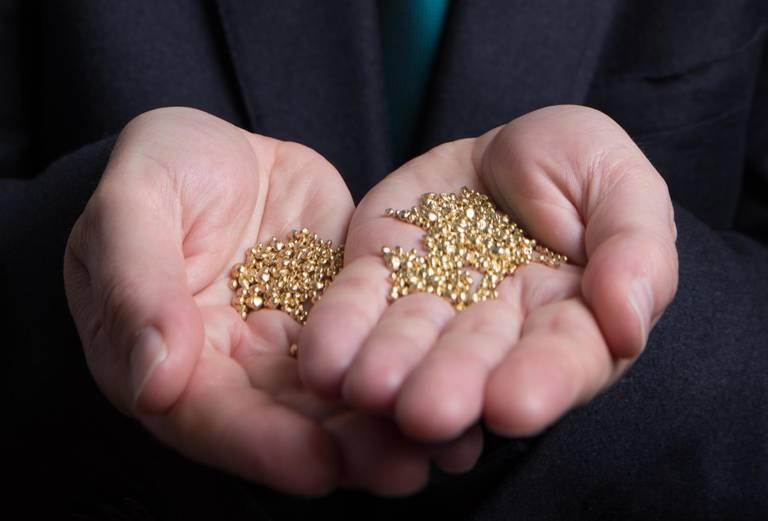
The very mention of gold conjures wealth, prestige, quality and power, but for those who work in the extractives industry, the reality is usually far different. Add the fact that most of the world’s more prolific gold deposits are located in remote regions of the world, and the result is an environmental footprint exacerbating what are already endemic human rights problems. Whether gold is mined for jewelry or electronics such as smartphones, the harsh truth for those working within the sector is that gold mining is a dirty and dangerous industry.
And most buyers and traders in the gold industry are only concerned with ensuring the metal arrives at its final destination, whether it is in Dubai, China, Europe or the U.S. What they often do not check is the environmental impact of that gold or if child labor was involved in its extraction. “We buy the gold. We do not care where it is from. If you have the gold we shall buy it,” said one firm interviewed by the Guardian last year.
“Artisan,” or more-localized mining, often offers a better quality of life for miners of gold and other precious metals and minerals. And if they can gain a fair price, while that gold can be traceable throughout a company's supply chain, then everyone in the industry can benefit.
To that end, the London-based Fairtrade Foundation has launched a program that it hopes can help scale fair trade-certified gold.
Over the next few years, Fairtrade aims to gain as much as $2 million in investments that will boost the prospects for small-scale mining sites across East Africa. Many of these operations simply need financing in order to boost productivity – and if they can do so safely and sustainably, they can provide businesses a valuable metal that can help communities instead of harming them.
According to Michael Gidney, CEO of Fairtrade, assistance developing a market for fair trade gold has come from many directions. The British NGO Comic Relief, for example, last year contributed almost £870,000 ($1.2 million) in grants to support this mining program in East Africa. The Dutch government has worked with companies in the Netherlands to forge an agreement to use responsibly-sourced gold in its products. Companies including Fairphone and Philips have also promised to use more of this gold within their devices.
So far, plans call for a small amount of fair trade gold to be in some jewelry lines in time for Christmas this year. Meanwhile, Fairtrade will work with its corporate partners to ramp up the production of gold in Uganda, Tanzania and Kenya.
While most consumers associate gold with jewelry, it is also important to the functionality of smartphones. According to Dell, while gold is not as fast of a conductor as silver, it is far more resistant to corrosion. Only 10 troy ounces (three-fifths of a pound) are in a ton of smartphone; that may not sound like much, but considering the demands for smartphones and how quickly phone companies convince customers to "upgrade," that adds to the strain in an industry already struggling to meet global demand.
The challenge for Fairtrade is that it will need to document and quantify the benefits for these communities. Plus fair trade efforts within the mining industry have kicked off before, only to fade from view. There is no shortage of critics who charge that the fair trade movement benefits the NGOs involved in the space rather than the actual people who harvest everything from coffee to cacao to now, gold. But considering the tales of people digging up their villages to find the smallest nugget of gold, any steps industry stakeholders can take is an improvement from the status quo.
Image credit: Fairtrade Association

Leon Kaye has written for 3p since 2010 and become executive editor in 2018. His previous work includes writing for the Guardian as well as other online and print publications. In addition, he's worked in sales executive roles within technology and financial research companies, as well as for a public relations firm, for which he consulted with one of the globe’s leading sustainability initiatives. Currently living in Central California, he’s traveled to 70-plus countries and has lived and worked in South Korea, the United Arab Emirates and Uruguay.
Leon’s an alum of Fresno State, the University of Maryland, Baltimore County and the University of Southern California's Marshall Business School. He enjoys traveling abroad as well as exploring California’s Central Coast and the Sierra Nevadas.














